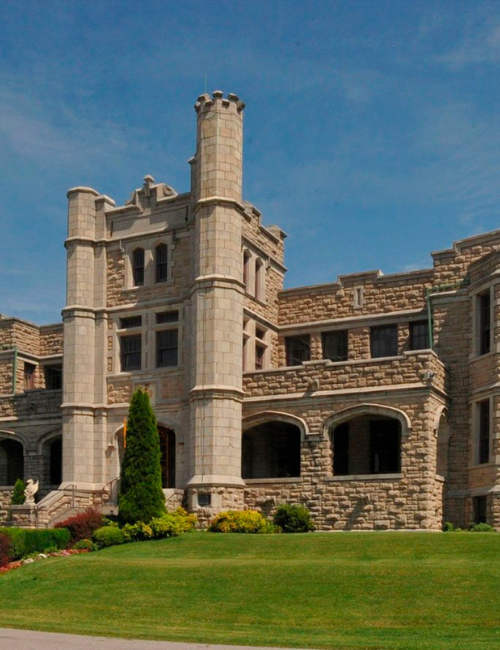
Tax rates in Springfield, MO, will affect the overall home value. These rates are tough, but they’re important. You should review these tax rates before purchasing a house. This guide offers an in-depth examination of how Springfield’s property tax rates are determined and their impact on home prices and overall budgets, providing a comprehensive overview. Whether you live in Springfield or are visiting there, you can have the edge in the real estate market if you know what to do.
Key Highlights
- Springfield, MO, property tax rates impact homeowners and commercial properties, affecting real estate decisions and financial planning.
- Understanding Springfield’s property tax requires knowledge of local assessments, tax levies, and policies, which are crucial for planning and compliance.
- Property tax in Springfield funds schools, infrastructure, and public services, significantly influencing the community’s quality of life.
- Local tax rates in Missouri are influenced by assessments, levies, economic conditions, and political decisions, which impact financial obligations.
- Proactive engagement with local tax policies and assessments enables property owners to optimize their financial outcomes and community contributions.
Understanding Property Tax in Springfield, Missouri
You need to know all the important things that affect your tax position to understand Springfield, Missouri’s property tax. If you own land in Greene County, such as in Springfield, you should consider how your tax rates are determined and what changes they may undergo. Tax systems in cities and towns are run by offices such as the county collection and inspector’s office. Due to these setups, some individuals make and lose a significant amount of money from their homes and companies. Bills for homes vary due to taxes and fees. What are the main parts of Springfield’s property tax system? Why are they important for budgeting?
The Basics of Property Tax
The property tax is a significant source of revenue for the city of Springfield, Missouri. It affects both the people who live there and the businesses that are located there. In Greene County, the county auditor determines the value of each house and then applies the millage tax rate (a tenth of a cent) to that amount. Most of the time, the estimated value is a small part of the property’s market value. The effective tax rate, which takes into account changes and returns, indicates the percentage of the property’s value that was actually taxed.
City and school systems, especially schools, impose a significant tax on people. These taxes help fund essential services, such as roads and schools. The county collector’s job is to collect taxes and distribute the funds. The inspector, the collector, the property owners, and neighborhood groups all work together to make a system that works for everyone.
Why Springfield’s Property Tax Matters

People who live and work in Springfield are interested in how businesses and homeowners are taxed. It changes the way people spend their money and support local businesses. The amount of tax people pay on their homes is based on the value of their homes. They pay for things like roads, schools, and public safety, which improve the quality of life in the area. Business owners must pay a significant amount of taxes, which can make it challenging for them to decide whether to renovate their buildings or let them deteriorate. These things help the economy grow and create jobs.
The tax rules and services in place for Greene County are also applicable to Springstown. Costs and tax rates vary based on the neighborhood’s needs. These changes can be anticipated by those familiar with the county auditor’s office. The collector’s office’s job is to make sure people pay their debts and follow the rules. To better prepare for these expenses, homeowners and buyers can use a closing costs calculator to estimate fees in advance and plan their finances accordingly.
Lastly, Springfield’s plan for property taxes isn’t just a way to get money. People and businesses want everyone to be healthier, so investing in the health of the entire community will make it happen.
Property Tax Rates in Missouri: An Overview
Property tax rates in Missouri play a significant role in funding public buildings and services. Both homeowners and business owners are affected. It’s essential to understand why these tax rates are set the way they are, so you can comprehend how the state finances its operations. There are some unique aspects to consider in Springfield, located in Greene County. These are caused by how the city is run and what the community needs. The county collector’s office sets rates, taxes, and fines to ensure that all government agencies receive the necessary funds. When examining large-scale issues, such as school districts and spending, it becomes clear how crucial it is to understand these tax matters.
Factors Influencing Tax Rates
Taxes in Missouri are determined by market forces, state laws, and the preferences of the residents. The value of the house is a significant factor in determining taxes, and the county inspector is responsible for this task. They are based on the market and help people choose how much tax to charge. Tax tools on websites run by local governments can help individuals determine their tax obligations and create budgets.
Cities, towns, and counties charge taxes that fund essential services, including parks, schools, and public safety. These taxes also affect rates. These fees are very important in Greene County because they have a direct impact on the services people use. If you take into account tax breaks and returns, the effective tax rate tells you how much property owners really pay. This is why this number is so important when creating a budget.
The direction of the business is also important. The government may need to adjust fees to maintain services during a downturn. As the economy improves, however, home prices tend to rise, which in turn affects tax rates and laws. These changes are due to the state’s economy, which is comprised of two main components: agriculture and urban development.
The politics of every place also affect tax policy. Springfield voters can sometimes approve or reject tax proposals that affect projects such as constructing new schools and renovating old ones. The system is constantly evolving to meet the needs of the community and property owners. Checks, policy decisions, changes in the business, and public input all contribute to this possibility.
Springfield’s Unique Tax Rate Considerations

Springfield, MO, located in Greene County, has specific rules governing the taxation of homes. The rules are based on what people in the area want and how the real estate market operates. Tax money is sent to the right places to help schools, roads, and public safety. The market tells the county clerk how much homes should cost at any given time. With these lines, people can see how much tax they owe. People who own land should be aware of changes in its value.
Their tax rates are based on the amount of property taxes collected for schools, which is why this is the case. Most of the time, tools and services improve when taxes increase. Referendums give people a lot of power to have their say on this. The community runs these steps, which link money plans with goals in the area. Often, county, city, and state laws are similar. This means that business owners have to follow more rules. Tax breaks and government funding can help a business decide whether to invest in improvements or expand. In a broader sense, this indicates that property taxes are closely tied to economic growth.
When the market changes, Springfield’s fees change too. When more people want to buy homes, prices and taxes may change. When the market slows down, there may not be enough cash to buy things. Fees and tolls may increase or decrease. The county collector’s office needs to be very careful about how it handles these shifts. Springfield’s tax system is a good example of how to run a business, manage finances effectively, and benefit the community. Even as the city grows, the people who live and work there will still have the opportunity to shape it.
How Property Tax Bills Are Calculated
When determining Springfield, MO property taxes, it’s essential to consider all the small details that contribute to the overall cost of living. This method takes into account Greene County tax rates, local regulations, and the impact of various tax levies. These things are important for people who own businesses or homes because they help them create budgets and determine how their tax bills will change. If you live in a county, the numbers from that county play a big role in how much your home is worth. They work together to figure out the tax bill.
The Role of County Assessments
People who live in Springfield pay taxes based on the county’s estimated market value of their house. This seems to be it. They conduct these checks to ensure that everything is fair and accurate in Greene County. If the land has been sold before and has undergone any changes, those factors are taken into account. Most of the time, the approximate value is a share of the real value. You can use this to decide how much tax to charge and get money for things like roads and schools.
Sometimes, assessments are changed to reflect new buildings or changes in the market. This ensures that the gifts are fair and match the land’s value. The county collector’s office can assist you with this if you own land; you can contact them for more information if needed. Everything is now clearer and more transparent. The way property taxes work in Springfield is not based solely on guesswork.
Impact of Local Tax Policies

Springfield’s property taxes are set by the city, so the rates for both homes and businesses depend on those rules. These rules were established to ensure that spending remains in check and community needs are met. They help pay for roads, schools, and keeping people safe. A significant part of this process involves tax increases based on the estimated costs. People often have a say in how things turn out through referendums that show what’s important to the community.
Tax rules change based on the company, the people, and the government. When the economy is struggling, certain steps can be taken to support people. Laws can help fund large projects, such as new roads and bridges, when the economy is performing well. Tax laws change frequently, which in turn affects how business owners manage their finances, select investments, and hire staff.
It’s open because the Greene County collector’s office provides records and clearly explains how laws affect people. Ultimately, Springfield’s tax policies strike a balance between the people’s strengths and the city’s need for public funds. People in that place want to improve and grow.
Navigating Property Ownership in Springfield
Determine how much it costs and how much it costs to stay ahead. It is not always a good place to live when salaries are too low. It is crucial to consider this tax, as it impacts how dwellings are constructed and operate. It is critical to understand taxes, fees, and how local organizations operate, such as Greene County’s gathering and inspection offices. These facts can help people not only get their finances in order, but also get along with their new neighbors.
Essential Tips for Missouri Property Owners
People who own land in Springfield should understand the local tax system to manage their finances effectively. That way, everyone in Greene County pays the same amount of taxes. The auditor’s office determines the value of a piece of land. People in Springfield pay for roads, schools, and public safety with these taxes. For health reasons, everyone needs to have them. Individuals who own land should monitor these numbers to create more informed budget plans and stay aware of changes in tax rates and property prices.
The fees that city and county governments set up change people’s tax bills. This money helps fund essential services that the town needs, such as schools, police, and other vital services. There are online tax tools that can help people get a rough idea of how much they owe. People can also submit ideas for changes or share their thoughts at public meetings and county consultations. That is, tax rules should help both the government and the people who live there. One way to do this is to be open and take part in your neighborhood.
Tax time can make it challenging for business owners to plan how to manage, grow, and invest their finances. Tax rules and potential awards can help businesses reduce costs and grow more quickly if they plan. Springfield property owners need to learn about and participate in the city’s property tax system. In the long run, this will help the city grow and safeguard its finances.
You can sell your Springfield, MO, house faster, with no repairs and no stress. At Reliable Cash House Buyers, trusted cash home buyers in Missouri, we offer fair cash, handle all the details, and make the process simple from start to finish. Contact us at (816) 451-0753 today for your free, no-obligation cash offer!
FAQs:
What is the role of property tax rates in Springfield, MO?
Property tax rates in Springfield have a significant impact on homeowners and prospective buyers. They are crucial for making informed decisions about real estate investments because they significantly influence property valuation and individual financial decisions.
How are property tax rates determined in Springfield, MO?
Property tax rates in Springfield are determined based on property assessments by the Greene County auditor’s office. The tax rate is expressed in mills and is applied to the assessed property value, which is typically a percentage of the property’s market value.
What services are funded by property taxes in Springfield, MO?
Property taxes in Springfield fund essential community services, including public schools, infrastructure, and safety initiatives. These contributions play a pivotal role in enhancing the community’s quality of life.
What entities are involved in the property tax system in Springfield?
The property tax system in Springfield involves several entities, including the Greene County Auditor’s Office, which assesses property values, and the County Collector’s Office, which is responsible for collecting taxes. Local government entities also impose tax levies to fund public services.
How can property owners engage with the property tax process in Springfield?
Property owners can participate in the property tax process by consulting with and appealing to the county collector’s office to ensure transparency and fairness. They are encouraged to stay informed about assessment criteria and local tax policy changes, as these can impact tax liabilities.
Helpful Springfield Blog Articles

